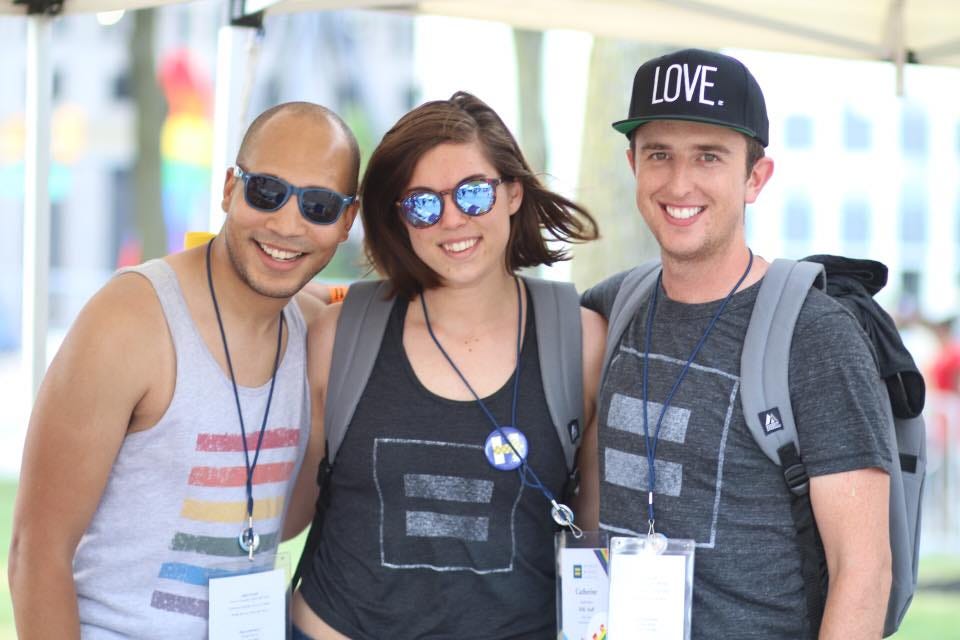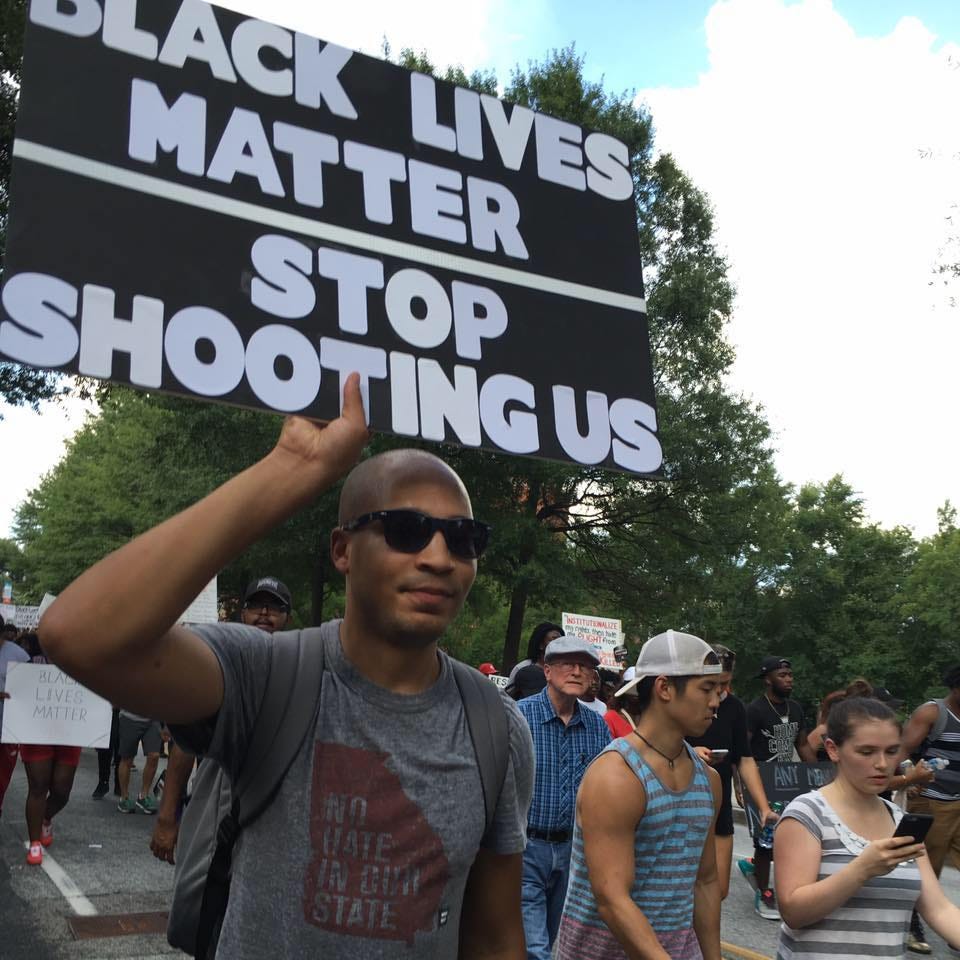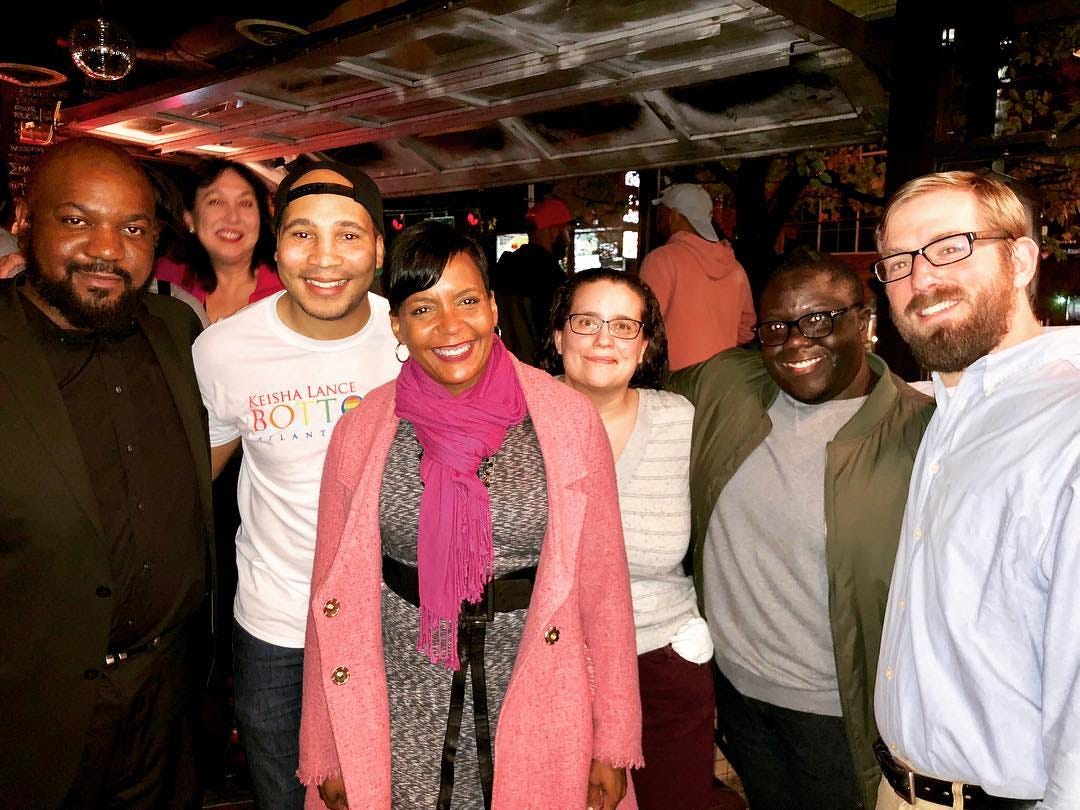What I Did With It Part Two: Only The Young
A four-part reflection series told in personal, serialized essays.
Volunteering for the Human Rights Campaign changed my life.
I was so uptight that first day. I was 23, and I really wanted to make a good impression. I showed up as some boring, overly proper version of myself. But one of the other volunteers clocked me immediately. He grabbed me by the arm, marched us over to the bar, ordered a round of cocktails, and said something like, “If we’re volunteering for a good cause, we may as well have fun doing it.”
From that moment on, I knew I’d found something special.
After just one event, I joined the Membership Outreach & Community Events Committee—and before long, I was co-chairing it. We organized events, built community, and raised hundreds of thousands of dollars for LGBTQ+ equality. And honestly? We had a blast doing it.
Pride brunches. Bowl-a-thons. Tennis tournaments. Burlesque shows. We tried it all—anything to bring people into the movement in ways that felt warm, authentic, and just the right amount of fabulous.
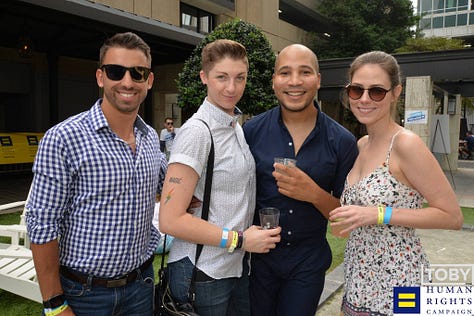
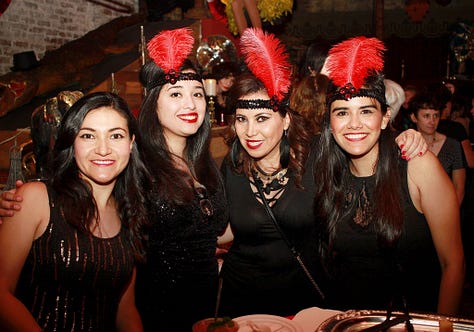
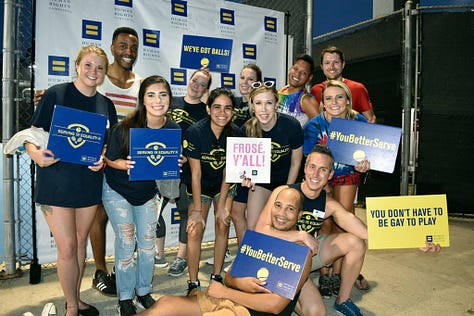
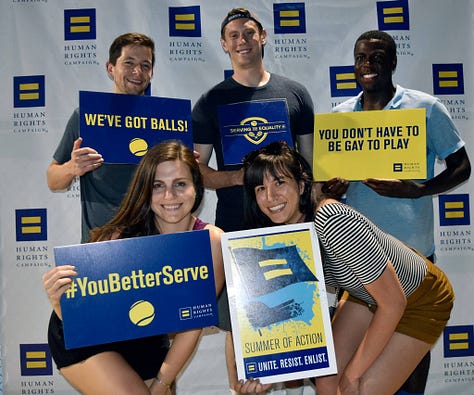
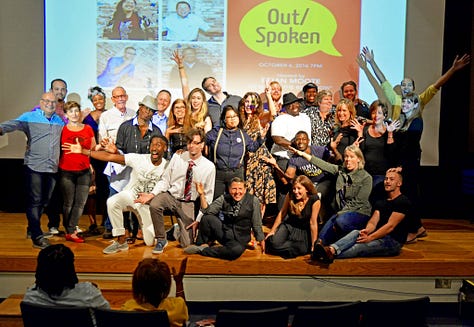
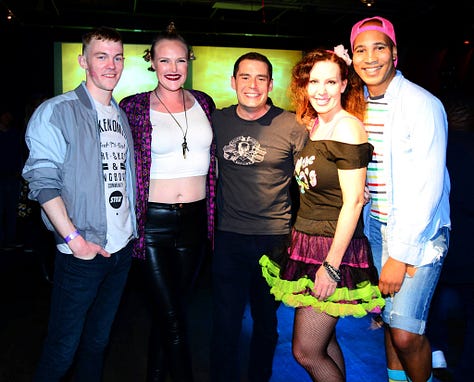
Most of the time, I was the youngest person in the room—and often, the only Black one. That part wasn’t always easy. But working alongside folks who were further along in their personal and professional journeys shaped me. I was learning firsthand from people with résumés longer than my credit history.
Eventually, I was elected to HRC’s National Board of Governors. That moment hit different. I remember finding out the Board was listed in HRC’s IRS filings and thinking, Wait… this is real. Official.
My work expanded to include supporting the national operations of the organization, while still staying rooted in our local efforts. And then came the travel. I visited cities like Detroit, Charleston, Indianapolis, and D.C.—helping build momentum, supporting staff, and recruiting new members. It was a role reserved for what they called “rockstar volunteers.”
One summer, I joined my HRC family for Detroit Pride. The weekend was off to a great start. We were building community, embracing visibility, doing the work we loved, and celebrating once the sun went down. I’d even met a cute boy.
And then, everything changed.
We woke up that Sunday morning to reports of a mass shooting at Pulse Nightclub in Orlando.
Forty-nine lives lost. Dozens more injured.
A safe space for queer people of color, shattered.
We all felt it—grief, fear, heartbreak. But also something harder to name: the heaviness of knowing that our pride had been targeted.
And yet, we still had a festival to attend. A Pride parade to watch. We didn’t know if more attacks were coming. None of us felt entirely safe.
But we showed up anyway. If Pulse reminded us of anything, it’s that Pride was never just about celebration—it was always an act of resistance.
That weekend in Detroit, we didn’t dance the same way. We didn’t march the same way. But we held each other a little tighter. We looked out for one another. We remembered that the only thing that can conquer hate is love—and not the kind of love that’s quiet or easy, but the kind that shows up when it’s hardest.
It brought us together in a time of unspeakable pain.
And it reminded us exactly why the work mattered.
Just a few weeks later, Alton Sterling and Philando Castile were killed—within twenty-four hours of each other.
Two Black men.
Two police encounters.
Two lives stolen.
One of them was streamed live on Facebook.
I’m embarrassed to admit it, but I think that was the moment I truly woke up. For so long, I had believed them when they told us these tragedies were isolated incidents. Outliers.
But they weren’t.
They were part of a larger, systemic problem. A problem taking the lives of people who looked like me and my family. The realization knocked the wind out of me. I called out of work and spent two days in bed, trying to process it all.
I joined my community in protest. But, protesting wasn’t enough. Not for me. Not anymore.
I had to do more than post and march and mourn. I needed to be part of the decisions being made. I needed to be closer to the systems I wanted to change.
And then came an opportunity.
One of the wildest things about being a young gay advocate was getting to share space with people who had actually moved the needle. People who had been there when the world told them no—and pushed forward anyway.
One of them was Cathy Woolard, the first openly LGBTQ elected official in Georgia. She’d served as President of the Atlanta City Council and championed the BeltLine before most people even knew what it was.
By 2016, she was running for Mayor of Atlanta.
At the time, I was working in fundraising for a national health org that was in chaos—leadership changes, field offices shutting down, people getting laid off. We didn’t know if we were next. So, when that same Tinder date offered to facilitate a conversation between me and Cathy to discuss her campaign, I jumped at it.
We sat down for a conversation… and just like that, I was on a mayoral campaign. We were a ragtag team of mostly LGBTQ+ young people who believed in her vision. Over the next year, I knocked on doors, planned meet-and-greets, organized fundraisers, and took on every odd job on the campaign you can imagine.
I even fell into a pond at a fundraiser once—at the legendary Buckhead Treehouse.
While Cathy was inside the main house giving a speech, my boyfriend Andrew and I were outside, strolling the property and soaking in the romantic moonlight. I went to step over what I thought was a mound of dirt… and fully disappeared into a pond.
The audience, seated inside, was facing a massive glass window that looked out onto the yard—right where Andrew was now scrambling in the dark to fish me out. Cathy kept speaking, completely unaware of the chaos unfolding just behind her.
The wildest part? No one noticed. Must’ve been one hell of a speech.
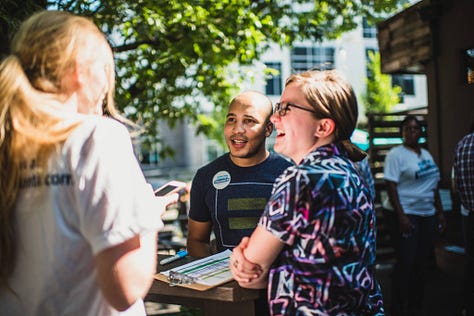
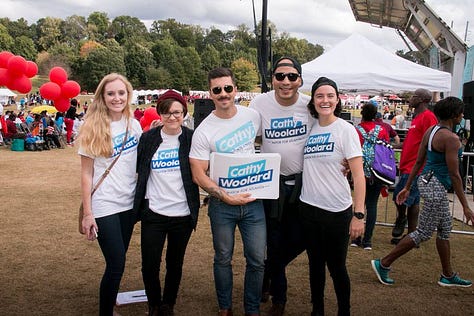
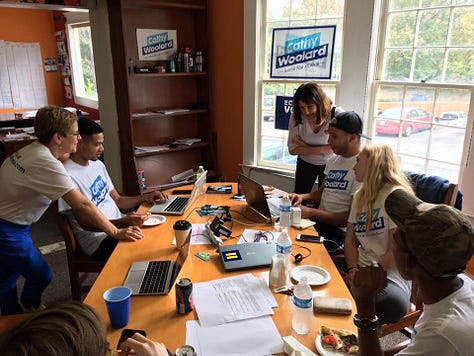
In that election, Cathy didn’t win. She came in third place. But when the dust settled, she sat each of us down and asked what we wanted to do next—and how she could help us get there.
My answer was simple: I wanted to see this race through.
There were two candidates left in the runoff. One of them was Councilwoman Keisha Lance Bottoms. A name I barely knew a year earlier—but her platform spoke to me.
One phone call changed everything for me. I had my next job: stomping for Keisha Lance Bottoms.
We worked out of an old Bank of America building on Cascade Road, in the heart of Southwest Atlanta. On my first day, I showed up expecting a bustling campaign office filled with fresh new faces ready to join the fight for the runoff election. Instead, I was the new face. No wave of new hires. Just a small circle of people who had already been grinding—and who weren’t quick to trust.
And I respected that. I’ve learned that sometimes the smartest people keep their circle small.
Unlike so many politicians—especially in the South—Keisha didn’t need a “journey” to accept LGBTQ+ people. It was in her upbringing. Her mother owned a hair salon. Her father, a Grammy-nominated R&B singer, once opened for Elton John. LGBTQ+ people had always been part of her world. She didn’t have to grow to accept us. She already did.
The campaign’s energy was different—bigger, scrappier, more intense. But I quickly found my niche: helping her deepen connections with LGBTQ+ voters across Atlanta. Soon, we were holding events in gay bars, LGBTQ-owned restaurants, and people’s homes—showing up, showing love, and showing we meant business.
Keisha was a different kind of politician than I was used to. She led with heart and faith. The campaign got ugly at times—people questioned her about things none of the other candidates were subjected to. I remember the early morning motivational texts she’d send the team, waking me up at 6 a.m. more than once. I’m not a morning person, so at first, I rolled my eyes. But those messages still live with me. They still guide me.
She heard the rumors. She saw the attacks. But she assured us she was strong enough to handle them—and she would handle them. She told us to focus on the mission: helping voters connect with her vision for One Atlanta. The rest was noise.
That campaign was so long ago, and I still carry that lesson with me: “Focus on the mission. The rest is noise.”
On election night, the watch party was tense. The results were razor-thin. I definitely threw back a few shots with my comrades to calm my nerves. I’ll never forget election day. It rained—never good for turnout—but we worked like hell to get people to the polls, and it paid off.
Sure enough, Keisha won that race—by just 759 votes. After a recount, that margin grew to 832. When the race was finally called, it felt like every early morning, every late night, had been worth it.
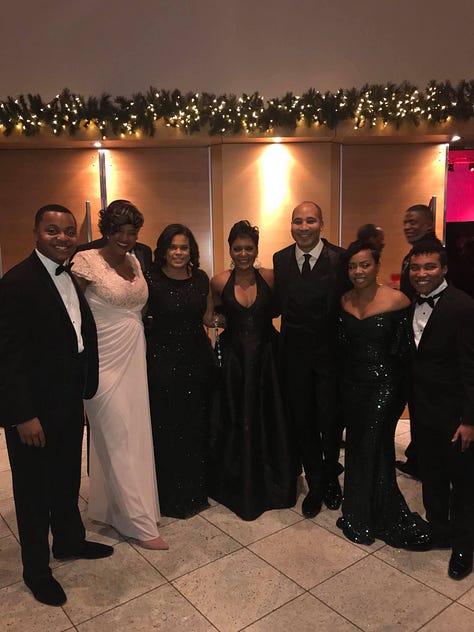
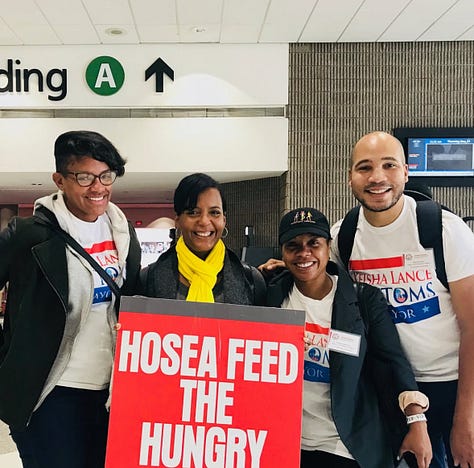
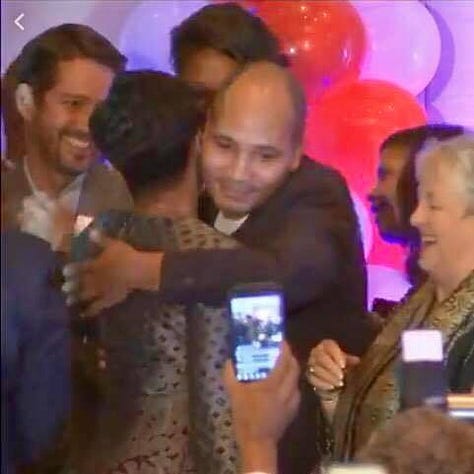
Atlanta had a mayor named Keisha.
I was such a baby politico then. Somehow, I’d gone from watching politics on the news to standing on stage with the incoming Mayor of Atlanta as she gave her victory speech.
After a few days to recover, I figured it was time to find my next job. That’s just how campaigns go—you win or you lose, and then you move on. But then I got a call I never expected.
They needed me at City Hall.
We had a transition to prep for.
And an inauguration to plan.
We’ll explore that next week.





